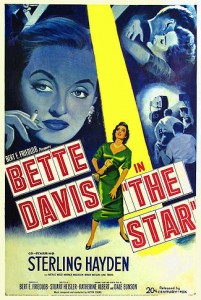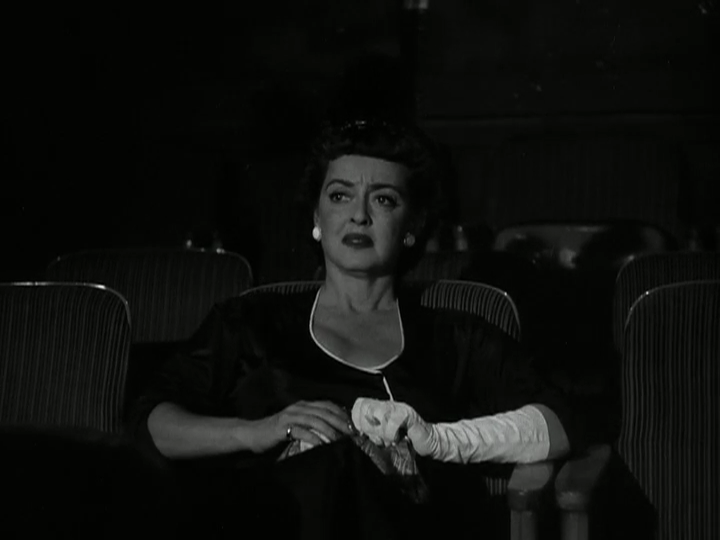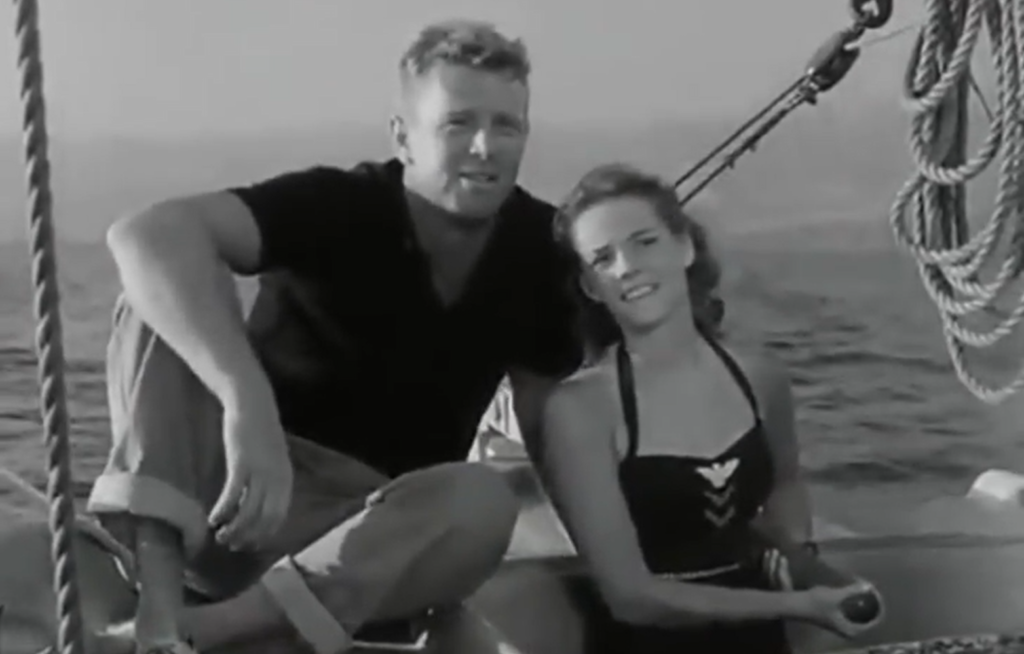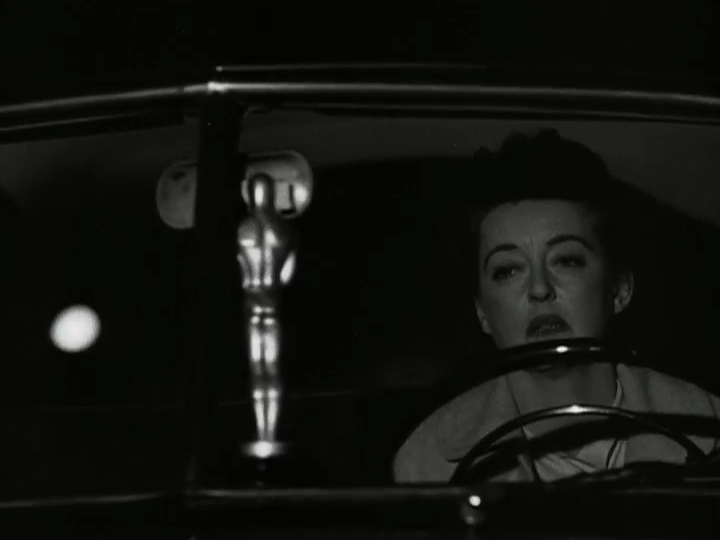Star, The (1952)
“If you’re a star, you don’t stop being a star.”
|
Synopsis: |
|
Genres, Themes, Actors, and Directors:
Review: Davis — who purportedly had Joan Crawford in mind when playing Elliott — gives a nuanced, sympathetic performance as a woman unable to face the reality of her circumstances. The scene in which she watches herself in a screen-test, cringing in horror at the results of her vain refusal to accept her director’s guidelines, is masterful: … and her interactions with her ungrateful sister (Fay Baker) and brother-in-law (Herb Vigran) are nicely handled. However, the screenplay is ultimately a disappointment in comparison with the two classic titles referenced above, and it’s hard not to feel frustrated by what could have been done with this juicy set-up. The trajectory of the storyline — particularly Elliott’s romance with Hayden: … is too predictable, and some patently overwrought dialogue (“I once thought you were a woman. I was wrong; you’re nothing but a career.”) — place the film squarely in the realm of “women’s dramas”. However, Davis’s performance is strong enough to recommend The Star for at least one-time viewing. Trivia Note: Fourteen-year-old Natalie Wood plays a small role as Davis’s daughter, with one scene — taking place on Hayden’s boat — eerily foreshadowing the circumstances of her untimely death-by-drowning at the age of 43. Redeeming Qualities and Moments: Must See? Links: |






One thought on “Star, The (1952)”
Not must-see (~although Davis does a good-enough job and her fans will no doubt want to see it).
The points in the assessment above are well-said.
But what’s somewhat troublesome about the film is something that’s never addressed. The film seems to keep hammering home the not-realistic idea that a woman’s career in movies is over once she reaches a certain age. That may be true for female actors who aren’t all that talented and have little to offer but their looks. But Davis’ character is a star so the rules are different.
Some actresses from the classic era managed to maintain long careers (into the following decades) and weren’t ‘let go’ because they aged. (Look at our modern era: someone like Meryl Streep just keeps reinventing herself and has worked non-stop since the late ’70s.) So what ‘The Star’ doesn’t deal with is the issue of how you conduct yourself behind-the-scenes, how you nurture relationships to maintain and strengthen your career, what you do if you are protecting and challenging your abilities.
The film does suggest that Davis’ Margaret Elliott fell out of favor with audiences for some reason. But maybe she just managed her career badly or had an ineffective agent, etc. It’s hard to say.